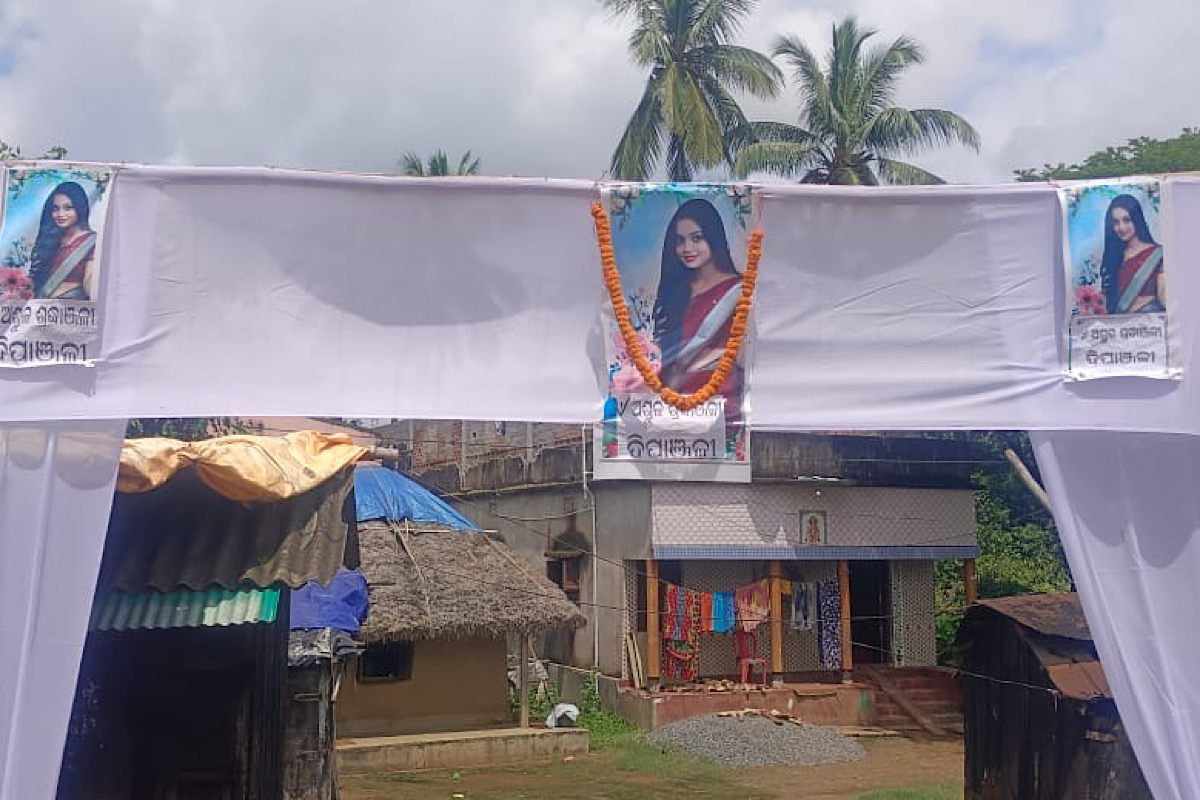In a bizarre turn of incident, family members of a 20-year-old girl in Odisha’s Kendrapara district publicly declared their daughter dead and performed her last rites on Thursday in a show of strong resentment against her marriage against their wishes.
Dipanjali Mallick (20), the daughter of Muna Mallick of Demal village under Aul police station, tied knots on 28 August with her boyfriend Rajendra Mallick (23) in the temple.
Advertisement
Infuriated over their daughter defying their decision, the parents took to the extreme step by severing ties with her, pronouncing their living daughter as ‘dead’.
“Our daughter had eloped with Rajendra. We lodged an FIR against him in Aul police station. Police had handed over our daughter after tracing her. But Dipanjali rebelled and married Rajendra in the village temple. It deeply hurt us and tarnished our dignity. So, we performed obsequies as she was dead for us”, bemoaned Muna Mallick, the girl’s father.
She had brought shame upon the entire family. We performed ‘pind daan’ and organised ‘Dasaha Bhoji ’ (feast held after a person’s demise) to publicly declare that our daughter was dead for us. We had a dream to arrange her marriage with a suitable youth. But she paid scant attention and got married without our consent, narrated the grief- stricken father.
“I have attained marriageable age. I made the right decision”, said Dipanjali.
However, the groom’s parents are however quite glad on the arrival of the daughter-in-law.
“My son has not done any wrong. We gladly accepted Dipanjali as our daughter-in-law”, said Anant Mallick, the father of Rajendra.
Both the bride and groom are majors. There is nothing wrong in a girl eloping to get married according to her choice after she has attained the age of 18 years. The family members of the girl have no right to perform the last rites of her. They humiliated and violated her human rights by performing her obsequies, said Amarbara Biswal, a human right activist of Kendrapara.
Dipanjali has legal right over the property of her parents and her parents cannot disinherit her from their properties though they performed her last rites .The Hindu Succession (Amendment) Act, 2005 was enacted to remove gender discriminatory provisions in the Hindu Succession Act, 1956. Under the amendment, the daughter of a coparcener shall by birth become a coparcener in her own right in the same manner as the son, said Subash Das, a lawyer of Kendrapara.









